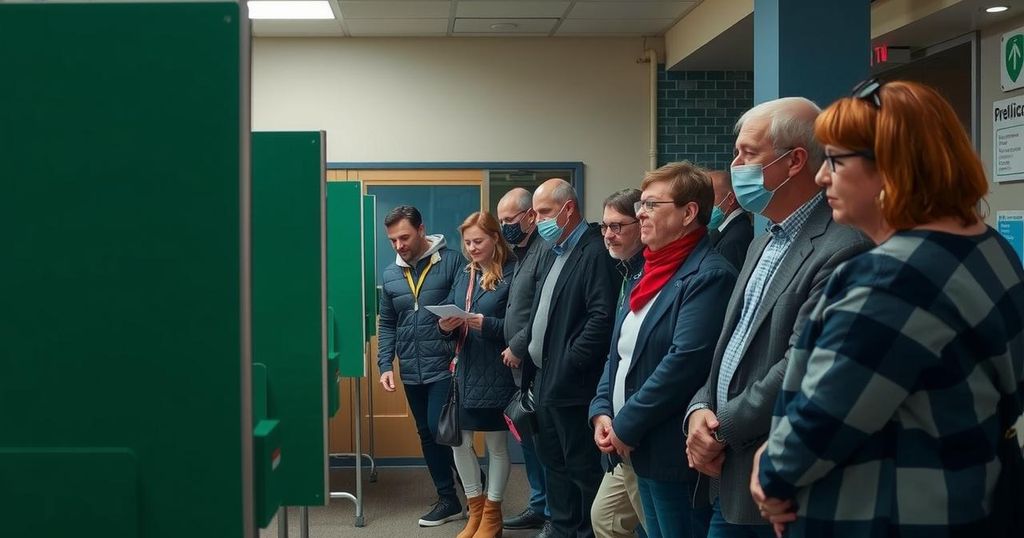Ireland Faces Tight Election Amidst Housing Crisis

Ireland held a closely contested election with Fine Gael and Fianna Fail competing against Sinn Fein, amidst a severe housing crisis impacting voters. Pre-election polls indicated that each party hovered around 20 percent support, while housing and cost-of-living issues were focal points during the campaign. The final electoral outcomes may take several days to be unveiled due to the proportional representation voting system.
Ireland recently held a closely contested election that saw two centre-right parties, Fine Gael and Fianna Fail, in a tight race against the leftist-nationalist party Sinn Fein. As voters went to the polls, pre-election surveys indicated that all three parties were polling at approximately 20 percent. These results would likely enable Fine Gael and Fianna Fail to retain power after forming a coalition for the first time following a previous inconclusive election in 2020.
Widespread issues, particularly a housing crisis affecting citizens amid soaring rents and property prices, dominated the electoral discourse. This comes despite the country’s healthy financial situation underscored by significant corporate tax income from multinational companies. Simon Harris, leader of Fine Gael and the Taoiseach, called for the election following announcements of extensive tax cuts and increased spending, indicating a focus on economic measures. However, a viral incident involving Mr. Harris and an upset care worker led to a decrease in his party’s polling support, highlighting the disconnection between the government and voters.
Sinn Fein had previously led in the polls during 2022 and 2023, gaining popularity due to its leftist policies. However, it faced challenges as support waned related to its more liberal immigration policies. Following the ballot casting on Friday, counting is set to commence in Ireland’s constituencies, and the complete results are expected to take several days due to the country’s proportional representation electoral system.
The election in Ireland is a pivotal moment for the nation’s political landscape, reinforcing the significance of housing issues and public service management in the electorate’s concerns. Over recent years, Sinn Fein emerged as a formidable political force, significantly reshaping voter preferences and prompting discussions around its historical ties to the Irish Republican Army. Meanwhile, the coalition between Fine Gael and Fianna Fail marked a historic political alliance aimed primarily at circumventing Sinn Fein’s governance. Despite the substantial financial oversight from corporate tax revenues, the public’s growing frustration over the rising cost of living and housing shortages has put pressure on the incumbent parties to address these pressing issues more effectively.
The recent election in Ireland underscores the competitive nature of its political environment, marked by the rising prominence of Sinn Fein amid the backdrop of a significant housing crisis. As Fine Gael and Fianna Fail strive to maintain their coalition despite increasing public dissatisfaction, the election results may redefine the future political journey of Ireland. With extensive counting underway, the electorate awaits the final decision that could result in a shift in governance and policy direction.
Original Source: www.aljazeera.com








